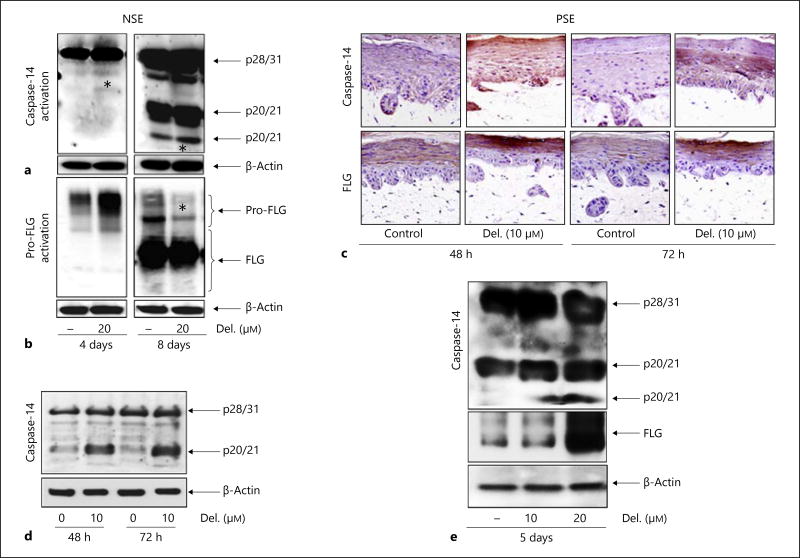Fig. 2.
Delphinidin (Del.) treatment promotes procaspase-14 and pro-FLG protein expression and activation in 3D reconstituted human NSE and PSE. Reconstituted tissues were treated with or without delphinidin for 4–8 days (NSE), and 48, 72 and 120 h (PSE). Immunoblot analysis of control vs. delphinidin-treated tissue lysates was analyzed for expression and processing of procaspase-14 (a) and pro-FLG (b). c Representative photomicrographs of PSE tissue sections treated with or without delphinidin (10 µM) and immunostained for caspase-14 and FLG. Immunoblot analysis of PSE lysates probed with human caspase-14 Abs showing incomplete activation of procaspase-14 after 72 h (d) and complete processing of caspase-14 and FLG upon prolonged (5 days) treatment with delphinidin (e). Equal loading was confirmed by stripping and reprobing the blots for β-actin. Figures are representative blots of three independent experiments for each treatment group with similar results. * See explanation in text.

